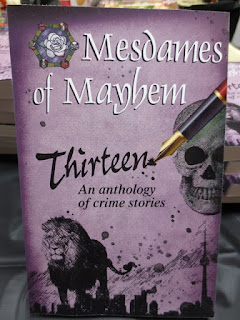As the author of six books and several short stories (eight
books if pre-published counts), I have indulged in a lot of research. I use the
word indulge on purpose, because most of the time, it’s fun.
Wikipedia states that research (look again? look
differently? – see how I get carried away?) is defined as "creative
work undertaken on a systematic basis in order to increase the stock of
knowledge, including knowledge of humans, culture and society, and the use of
this stock of knowledge to devise new applications.”
I love that whoever wrote this Wiki
page described research as creative. For an author, the inventive part comes
when we synthesize the knowledge into something completely unique, a new
character, a fantastical society, or an ingenious philosophy.
Why would a fiction author do research,
you ask? For me personally, there are a couple of reasons (at least) and I
believe most of my author colleagues would agree with them.
First, a novel must
have credibility.
Yes, even if you are writing about a
completely fictional town. For my Emily Taylor Mystery series, my imaginary
village of Burchill, situated in the middle of Ontario, couldn’t sport
palm trees. The setting, even in a fantasy novel, needs to have some
familiarity for the reader or we’ll get completely lost. In a mystery novel,
the setting must be pretty real. Burchill is based on Merrickville, Ontario, so
I visited, used maps, looked up the geography and topography.
In a mystery, the plot is extremely
important. The Emily Taylor Mysteries taught me, often the hard and
embarrassing way, that a plot idea often leads to a myriad of investigations.
My novels aren’t police procedurals, but they do have policing in them. I
learned from some of my endorsers (e.g. author Vicki Delany) that I had to be
more accurate.
In The Bridgeman, my main character was
the operator of the lift bridge. I knew nothing about that – enter, research!
Not to mention puppy mills (heartbreaking knowledge to have), policing of small
towns, and First Nation territories.
For Victim, I ended up having to learn
about forests, caves, rescue operations, vegetation and First Nation
philosophy.
With Legacy, I expanded into child
protection services, hypnosis, oxygen deprivation, post-partum depression,
fires, provincial courts and churches.
For Seventh Fire, wrongful convictions
took up most of my fact-finding time.
Sweet Karoline involved history,
pow-wows, policing in the US and Canada, and even more thoroughly, psychosis.
See how one little plot points feeds
the research machine? And the author simply must do it – otherwise, your
readers will pounce on you and refuse to buy the next one.
“The greatest part of a writer’s time
is spent in reading, in order to write: an [author] will turn over half a
library to write one book,” said Samuel Johnson, an English author in the
1700’s.
Do fiction authors have to be
completely accurate? Well, no. We are writing a story, after all, one that’s not true. However, we must find the
balance between reality and imagination to be believable.
Mark Twain famously said, “Never let
the truth get in the way of a good story.” This quote has often been translated
into “the facts” rather than the truth, but I suppose it means pretty much the
same thing. I somewhat adhere to this philosophy. I gather the information,
then sometimes bend or twist it to fit my purposes.
As Stephen King said, “You may be
entranced with what you’re learning about the flesh-eating bacteria, the sewer
system of New York, or the I.Q. potential of collie pups, but your readers are
probably going to care a lot more about your characters and your story.”
That’s often what I’m betting on when I
brush a bit too quickly across the truth or leave out some minutiae.
The second reason for doing research is
a big more esoteric. As Robert McKee, the creative writing instructor known for
“Story Seminar” has said: “Do research. Feed your talent. Research…wins the war
on cliché.”
Historical research for Sweet Karoline
led me to residential schools where Canadian First Nations children were confined.
Although these facts didn’t fit that book’s plot, I used the knowledge for The
Three R’s, my story in the anthology Thirteen.
Currently, I continue
to read
everything I can about the schools. I live in Brantford, Ontario, where
the
Mohawk Institute sits – the model for all the other residences in our
country.
Ironically, the Truth and Reconciliation Commission has just begun to
make many of my fellow Canadians aware of this shameful past. Some day, I
believe a novel on this topic is destined to burst forth from my
fingertips.
I like that. Including some of the most
poignant, interesting or vital facts can make the story more vibrant, realistic
and distinctive.
“Research
is one thing: passion,” said poet Khalid Masood. Very poetic and, I think, true.
Next Time: A Creative Scrutiny
of Research Part Two Subsection A: The Author Asks How to Research?
To find all my books and short stories, visit my website: www.catherineastolfo.com



